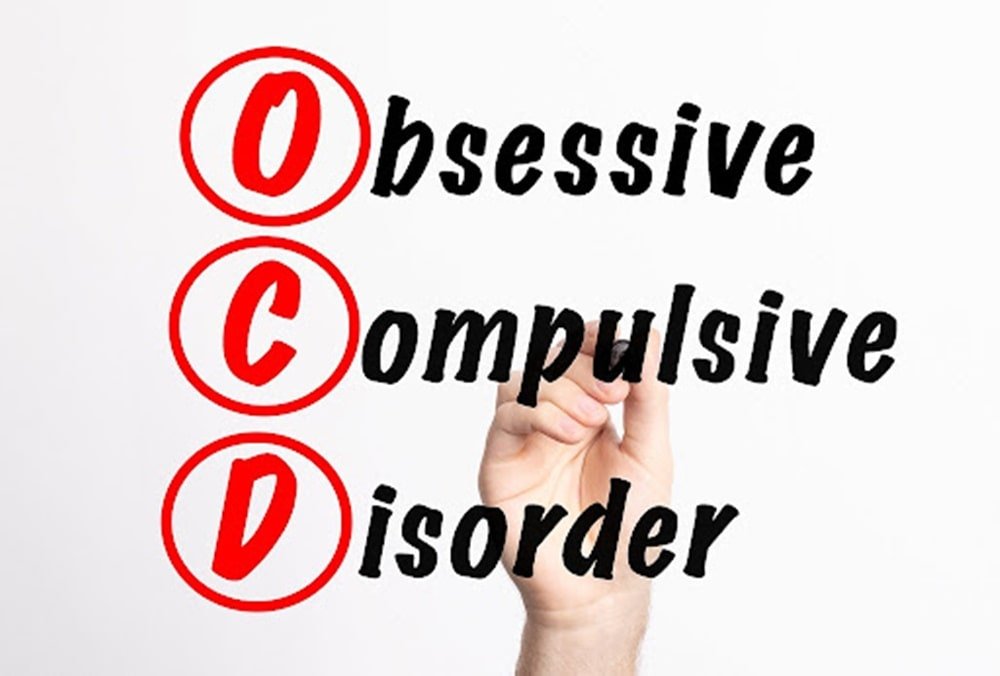
Will you listen to my predicament and how obsessive-compulsive disorder influences my behavior?
Do you notice how dry and cracked my hands are?!
I am obsessed with thoughts that my hands are filthy and unclean, and these thoughts compel me to rewash them, even though I know they are clean.
This narrative depicts part of the agony that obsessive-compulsive individuals go through, but did you realize that the symptoms are not limited to a hygiene obsession?
Other obsessions may exist in the life of the OCD patient, so stay tuned as we go over everything you need to know about obsessive-compulsive disorder in this article.
What is obsessive-compulsive disorder (OCD)?
OCD is a chronic mental illness characterized by illogical, obsessive, and compulsive ideas that lead to repetitive behaviors and acts.
Despite the patient being aware that his obsessions and acts are irrational, he could not stop them.
Even when confronted with obstacles in his life, a person feels obligated to practice and repeat his routines.
Also, there is a link between fear and intellectual obsessive-compulsive disorder.
For example, a person who constantly double-checks that he locked doors and windows will be terrified of theft or burglary.
Obsessive-compulsive disorder causes
Although scientists are still trying to figure out what may cause this disorder, several factors could play a role, the most important of which are:
Family history of obsessive-compulsive disorder
Genetics may have a role in the development of this disease.
Therefore, the presence of a family history, such as a sick father or mother, may make a person more susceptible.
Variation in brain activity
Scientists have observed increased activity in; certain areas of the brain in patients who may also have low serotonin levels.
Life’s challenges and stress
In addition, it is also common in those who have been bullied or abused as children.
Personality differences
Those who take on a great deal of responsibility for themselves and others are more likely to develop OCD.
Women’s obsessive-compulsive disorder
Women can develop OCD symptoms during pregnancy or after childbirth.
These symptoms can manifest as a fear of harming their children or failing to sterilize their utensils properly.
Types of obsessive-compulsive disorder
Although it does not have an official classification, it can be split into different types based on the similarity of symptoms in each category, as follows:
- Pollution and germ phobia.
- Arranging and matching objects.
- Obsession with hoarding and thrift.
- Aggressive, prohibited, or forbidden thoughts.
- An unquenchable desire to doubt the work’s completion.
Other forms may exist, but the majority of symptoms fall into one of these categories.
Symptoms of obsessive-compulsive disorder

People who suffer from OCD experience a variety of symptoms, including:
Cleaning and contamination concerns
The main symptoms for this type include:
- Constant anxiety about contamination and germs.
- Avoid contaminating sources.
- Dispose of whatever the person suspects are polluted, even if it is not.
- Washing hands or surfaces repeatedly without the necessity to do so.
Arrangements and organization
Symptoms of this obsession include:
- An urgent need to arrange things in a precise way without changing.
- If someone does not adequately order stuff, this makes the person feel incomplete or restless.
- A constant fear that something terrible will happen if things are not in place.
Aggressive, religious, or forbidden thoughts:
Here are the signs of this type:
- Obsessions and repeated ideas are often violent or sexual.
- Fear that the aggressive thoughts would manifest in deeds, turning him into a nasty person.
- The constant fear of causing harm to oneself or others.
- Fear of using sharp things leads to a tendency to hide them.
- The individual believes that he is the primary perpetrator of any harm.
- Obsessions with religious concepts and beliefs.
Hoarding
Hoarding is one of the most severe forms of OCD since keeping items too long can cause germs accumulations and an increased risk of sickness.
Also, keeping harmful items can lead to environmental disasters, and one of the most common symptoms connected with this preoccupation is:
- The belief of throwing objects may harm the person or others.
- If he could not find something specific, he becomes concerned that he has thrown it away accidentally.
- Purchasing items without a necessity and being unable to refrain from doing so.
- They do not toss things out because of their fear of getting contaminated.
Doubt in performing tasks
Examples of daily occurrences in this person’s life include:
- Ensuring that he closed the doors and turned off the lights numerous times.
- Even though he knows that he well completed his paperwork, he goes over them multiple times.
Sexual obsessive-compulsive disorder
Also known as hypersexuality disorder, it is a condition in which a person can not regulate his sexual behavior.
This behavior might make it challenging to work and manage time.
As a result, sexual obsessive-compulsive disorder; was added to the International Classification of Diseases by the World Health Organization.
Definition of sexual obsessive-compulsive disorder
This obsession is the continuous incapacity of a person to manage overwhelming sexual cravings, resulting in frequent sexual practices.
Symptoms
The following are some of the most common signs that suggest a person is suffering from this type:
- The sensation of being forced to engage in various sexual actions, as well as the subsequent regret.
- Using obsessive sexual behavior as a coping mechanism for dealing with the stressors and issues of life.
- Inability to control sexual fantasies and activities on a long-term basis.
- Recurrent sexual ideas and activities that the individual is unable to control that negatively impact his life.
This person should seek medical advice and assistance because it can cause harm to the individual and concerns for others.
OCD diagnosis
If someone has OCD symptoms, they should see a doctor as soon as possible.
The doctor discusses symptoms, thoughts, and routines with patients.
Diagnosing the disease often requires the following:
- The patient’s obsession and symptoms have a negative impact on his life, causing him to miss work or social life.
- His actions go against his will and cause him enormous pain, but he is powerless to stop them.
- When obsessions last for at least an hour each day.
The correct diagnosis can aid in determining the best therapy options and excluding any other psychological or mental issues.
Is it possible to cure obsessive-compulsive disorder?
Although there are numerous debates about whether or not OCD can be cured, obsessive-compulsive disorder is a long-term mental illness.
The given therapy instructions can assist in reducing or preventing symptoms, even though no treatment is 100 percent effective.
However, if a patient discontinues taking medication, or fails to adhere to the treatment plan, symptoms may reappear.
Also, it must be treated as any other chronic human condition.
Therefore, one must constantly shift their perspective from complete healing, to how to manage illness and overcome symptoms.
obsessive-compulsive disorder treatment
Numerous strategies can help the patient control his symptoms so that they do not interfere with how he lives his life, such as:
Psychological therapy
Cognitive Behavioral Therapy (CBT) assists a person in altering thought patterns and gaining control over obsessions.
In other words, the person learns how to quit obsessive thoughts and behaviors through therapy.
Medications
Selective serotonin reuptake inhibitors (SSRIs) are psychiatric drugs that help a person control troubling thoughts like:
- Fluoxetine (Fluvoxamine).
- Fluvoxamine (Fluvoxamine).
- Citalopram (Fluvoxamine).
If symptoms do not improve, the doctor may prescribe an antipsychotic medication such as:
- Aripiprazole.
- Risperidone.
Relaxation
Yoga and massage are two simple exercises that might help relieve stress symptoms.
Neuromodulation
Neuromodulation is another option in exceptional circumstances, such as when other treatments and medications are insufficient.
Also, your doctor may select using some devices that modify the electrical activity of a specific areas of the brain, such as:
Transcranial Magnetic Stimulation
An FDA-approved non-invasive technique in which the doctor attaches a device to the top of the head and uses a magnetic field to target specific brain areas.
Finally, if you are experiencing OCD symptoms, please do not hesitate to seek treatment and support as soon as possible.
Also, follow your doctor’s recommendations and stick to your treatment, to be able to control your obsessions and live a regular life.
Read Also;
Anxiety disorders treatment | When will my mental storm calm down?